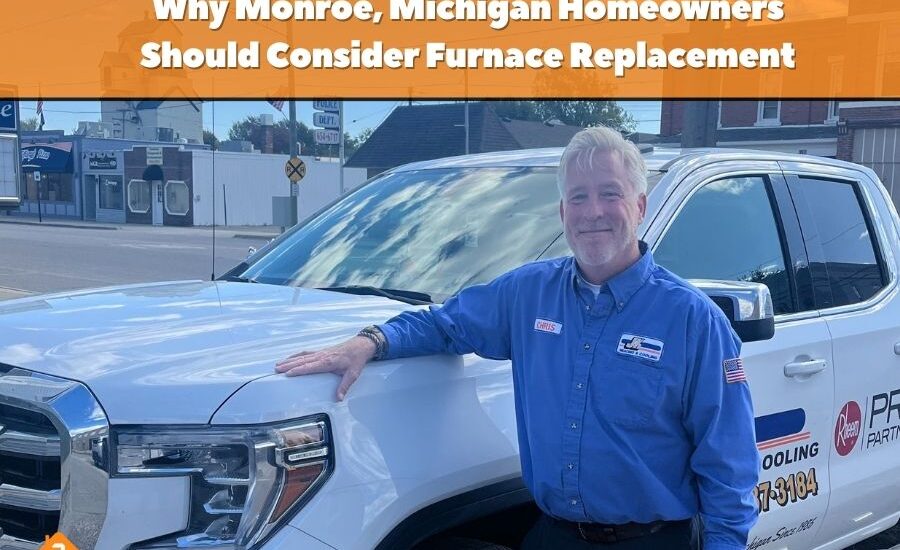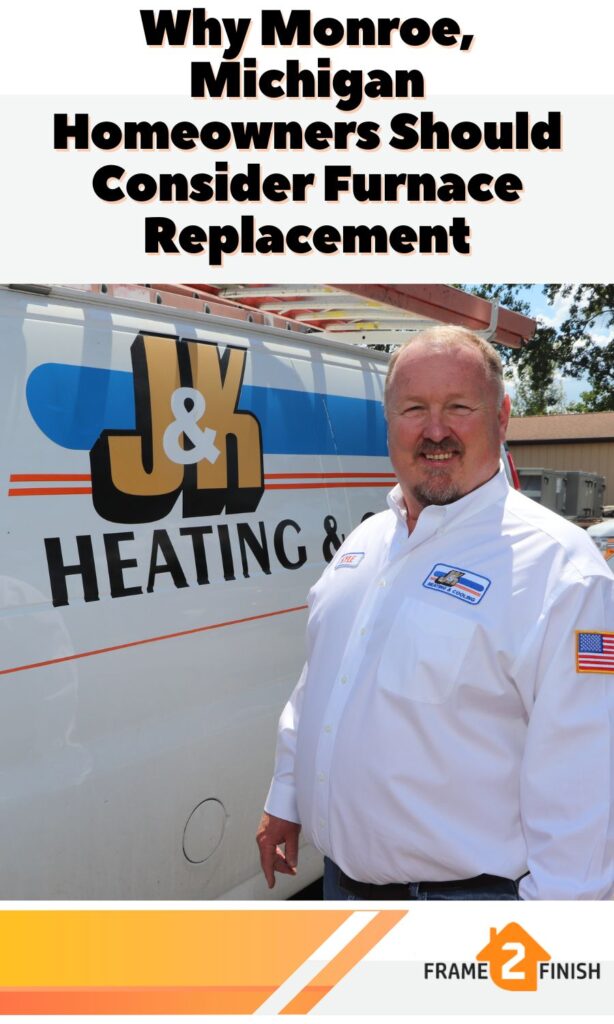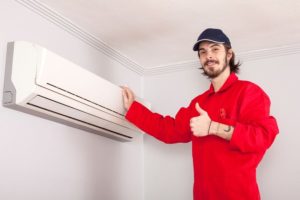In the cold winters of Monroe, Michigan, a good furnace is not just a luxury — it’s a necessity. A properly functioning furnace ensures a warm and cozy indoor environment while maintaining energy efficiency. Conversely, older furnaces may not only struggle to maintain desired temperatures, but they can also spike your utility bills due to poor energy efficiency. Furthermore, older units pose potential safety risks like carbon monoxide leakage, and frequent breakdowns can lead to costly repair bills. Upgrading to a new, efficient furnace is a wise decision that can save homeowners money and provide peace of mind.
Benefits of Furnace Replacement
Energy Efficiency
A new furnace works more effectively and uses less energy than older models. New furnace models are designed with advanced technology to deliver heat more efficiently, using less fuel and creating fewer emissions. This is great for the environment and your wallet, as it significantly reduces energy consumption.
Lower Utility Bills
Lower utility bills are a direct result of improved energy efficiency. As a new furnace consumes less energy, it demands less electricity or natural gas to keep your home warm. This can translate to substantial savings on your utility bills over the cold months, making furnace replacement an investment that pays off in the long run.
Comfort
The comfort and warmth provided by a new furnace are unparalleled. New furnaces are designed to distribute heat more evenly and maintain constant temperature levels, eliminating cold spots in your home. They operate quietly and efficiently, ensuring a warm and cozy indoor environment. Upgrading your furnace enhances your home’s warmth and improves your overall living condition.
Signs You Need to Replace Your Furnace
Age of the Furnace
One of the most fundamental aspects to consider when evaluating your furnace is its age. The average lifespan of a furnace is around 15 to 20 years, so if your furnace is within this age range or older, consider a replacement. Look for signs such as the manufacturing date on the furnace unit or the owner’s manual, or consult a professional to estimate its age. An older furnace becomes less efficient and may require more frequent maintenance and repairs.
Increasing Repair Costs
Frequent and costly repairs signal that your furnace might need replacing. If the repair costs approach or exceed 50% of the cost of a new furnace, upgrading to a new model is generally more cost-effective. Moreover, if the frequency of breakdowns is increasing and causing inconvenience and discomfort, it’s a good sign your furnace is nearing the end of its useful life.
Inconsistent Heating
Inconsistent heating throughout your home is another sign that your furnace might fail. If you’re noticing fluctuations in temperature or cold spots in certain rooms, it may be because your furnace can no longer distribute heat evenly. An efficient furnace should provide consistent heat to all areas of your home. Any significant deviation from this could indicate that your furnace is struggling to operate optimally; thus, a replacement might be in order.
Choosing the Right Furnace
Choosing the right furnace for your home requires careful consideration of various factors to ensure comfort, efficiency, and value for money. Here are some key aspects to bear in mind:
Size of the Furnace
The size of the furnace should be appropriate for the size of your home. A furnace that’s too small won’t adequately heat your home, while one that’s too large will cycle on and off too frequently, wasting energy and potentially decreasing the furnace’s lifespan.
Energy Efficiency
Look for a furnace with a high Annual Fuel Utilization Efficiency (AFUE) rating. The higher the AFUE rating, the more energy-efficient the stove is. Although higher efficiency models may cost more upfront, they can save you money in the long run through lower utility bills.
Type of Fuel
The most common furnaces are natural gas, oil, and electric, each with pros and cons. Natural gas furnaces tend to be the most energy-efficient but also the most expensive to install. Oil furnaces are cheaper and can generate more heat but are less efficient and more costly. Electric furnaces are the cheapest to install and are more efficient than oil furnaces, but they typically have higher operating costs due to the cost of electricity.
Maintenance and Repair Costs
Consider the cost of maintaining and repairing the furnace. Some models may be cheaper upfront but require more frequent and costly maintenance. Research the reliability and durability of various models and brands before deciding. Consider opting for a furnace with a solid warranty to protect your investment.
Professional Installation
Finally, ensure a certified professional installs your new furnace. Improper installation can lead to inefficiency and potential safety risks. A professional will ensure the installation is done right so your furnace operates efficiently and safely.
Get a Quote on a New Furnace Today
Don’t wait until the cold hits – now is the perfect time to upgrade your home’s heating system. Call J&K Heating and Cooling at 734-587-3184 and speak with our experienced professionals in Monroe, Michigan. We’re ready to help you choose the perfect furnace tailored to your home’s needs, and we offer a free, no-obligation quote. Ensure comfort and warmth for you and your family this winter with J&K Heating and Cooling. Call us today!





